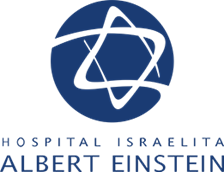


Hospital Israelita Albert Einstein (HIAE) in Brazil is the first Bone Marrow Transplantation Center in Latin America to receive FACT accreditation. HIAE is accredited for autologous and allogenic transplantation.
The FACT accreditation process took three years. To document decisions, medical records, protocols, results, training, data and registries was an arduous but necessary process. Fortunately, in 2012, the hospital was ready to undergo an on-site inspection from FACT. After the inspection and approval by the FACT Accreditation Committee HIAE became the first FACT accredited program in Latin America.
The hospital's objective in obtaining accreditation is to provide the best care possible for patients. With FACT accreditation, it is possible to open this path to other transplantation centers that also take good care of Brazilian and Latin American patients. By incorporating technology and quality standards, HIAE fulfills its mission of providing excellence in service. HIAE hopes that in the near future, all national institutions may have the same pride we feel today.
HIAE started its activities in bone marrow transplantation in 1987, with an autologous transplant. In that same year, the first allogeneic transplantation was performed. In 1997, the transplantation program from unrelated donors began with two procedures using cells from umbilical cords obtained from the New York Blood Center. In 1996, the hospital performed the first transplantation procedure in an autoimmune disease patient (refractory autoimmune hemolytic anemia) in Brazil and, since 1999, encouraged by Julio Voltarelli, has been performing transplants for autoimmune diseases with special focus on multiple sclerosis. Today, HIAE performs about 70 cell transplants per year, including auto, allo related and unrelated, umbilical cord blood and haploidentical transplants.
The hospital was founded in 1971 with the mission of providing quality health care, generating knowledge, and promoting social responsibility. In recent decades, an expansion plan doubled the hospital’s service area, expanded social programs of assistance to needy communities, and turned the hospital into a benchmark in organ transplants, in the public sector. HIAE works in close partnerships with governments for health assistance in various regions of São Paulo metropolis. The hospital’s research and educational institute has already trained approximately 130,000 professionals and conducts hundreds of studies annually.
In fact, such a concern with quality has lead HIAE to make history in Brazil in the field of quality accreditations. In 1996 and 1997, the institution was accredited by ISO 9001 in the areas of Laboratory, Blood Bank and Intensive Care Unit (ICU), which later spread to other areas. In 1999, HIAE achieved accreditation by the Joint Commission, the first hospital in the world to obtain such certification outside the United States. HIAE is also accredited by CAP (College of American Pathologists), the AABB, the Joint Commission for stroke (CVA) and Planetree.
Disclaimer: The opinions expressed here are solely the views of the writer and do not necessarily reflect the views and opinions of the Foundation for the Accreditation of Cellular Therapy.
FACT accredited organizations are encouraged to share their success stories and be featured on the FACT website. Your FACT accreditation attests to the high quality of your organization, and we invite you to share some of your program improvements, and additional benefits gained throughout the accreditation process. Access the submission form using the button below. If you have any questions, please email us at fact@factglobal.org.